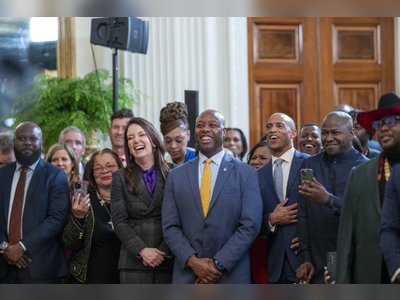New York's Cannabis Industry Surpasses $1 Billion in Sales Amidst Regulatory Challenges
New York's legal cannabis market has exceeded $1 billion in sales, highlighting both its rapid growth and ongoing regulatory hurdles.
New York's legal cannabis market has achieved a significant milestone, surpassing $1 billion in sales since its legalization in 2021.
This growth reflects the state's commitment to establishing a robust and equitable cannabis industry.
As of December 2024, the market has generated approximately $918.7 million in revenue, with projections indicating that sales could reach $1.5 billion by 2025.
The state currently operates 264 adult-use dispensaries, contributing to a substantial increase in tax revenues.
Local governments have received $22 million in taxes, including $7.9 million allocated to New York City.
These funds are being directed toward community reinvestment programs aimed at supporting populations disproportionately affected by past cannabis criminalization.
Despite this progress, the industry faces several challenges.
The initial rollout encountered legal obstacles, including delays in issuing licenses and the persistence of unregulated, illicit markets.
In response, the state has intensified enforcement efforts, closing over 450 illegal dispensaries and seizing approximately 7,700 kilograms of illicit cannabis products.
The Office of Cannabis Management (OCM) has also implemented measures to curb the illicit market, such as granting law enforcement the authority to padlock illegal cannabis shops.
These actions have led to the closure of nearly 1,350 unlicensed sellers since May 2023.
The rapid expansion of the legal market has raised concerns about potential oversaturation.
Some industry stakeholders suggest that capping the number of dispensaries could help maintain market stability.
The OCM is actively working to balance growth with sustainable practices, refining market projections and addressing challenges like application backlogs and legal disputes.
Governor Kathy Hochul has been instrumental in advancing the cannabis industry, overseeing the establishment of the OCM and the implementation of the Seeding Opportunity Initiative.
This initiative prioritizes licensing for individuals and communities disproportionately impacted by cannabis criminalization, including minority-, women-, and service-disabled veteran-owned businesses, distressed farmers, and nonprofit organizations supporting the formerly incarcerated.
The success of New York's cannabis industry underscores the importance of thoughtful regulation and community engagement.
As the market continues to evolve, it serves as a model for other states considering cannabis legalization, demonstrating the potential economic benefits and the necessity of addressing social equity in policy development.
This growth reflects the state's commitment to establishing a robust and equitable cannabis industry.
As of December 2024, the market has generated approximately $918.7 million in revenue, with projections indicating that sales could reach $1.5 billion by 2025.
The state currently operates 264 adult-use dispensaries, contributing to a substantial increase in tax revenues.
Local governments have received $22 million in taxes, including $7.9 million allocated to New York City.
These funds are being directed toward community reinvestment programs aimed at supporting populations disproportionately affected by past cannabis criminalization.
Despite this progress, the industry faces several challenges.
The initial rollout encountered legal obstacles, including delays in issuing licenses and the persistence of unregulated, illicit markets.
In response, the state has intensified enforcement efforts, closing over 450 illegal dispensaries and seizing approximately 7,700 kilograms of illicit cannabis products.
The Office of Cannabis Management (OCM) has also implemented measures to curb the illicit market, such as granting law enforcement the authority to padlock illegal cannabis shops.
These actions have led to the closure of nearly 1,350 unlicensed sellers since May 2023.
The rapid expansion of the legal market has raised concerns about potential oversaturation.
Some industry stakeholders suggest that capping the number of dispensaries could help maintain market stability.
The OCM is actively working to balance growth with sustainable practices, refining market projections and addressing challenges like application backlogs and legal disputes.
Governor Kathy Hochul has been instrumental in advancing the cannabis industry, overseeing the establishment of the OCM and the implementation of the Seeding Opportunity Initiative.
This initiative prioritizes licensing for individuals and communities disproportionately impacted by cannabis criminalization, including minority-, women-, and service-disabled veteran-owned businesses, distressed farmers, and nonprofit organizations supporting the formerly incarcerated.
The success of New York's cannabis industry underscores the importance of thoughtful regulation and community engagement.
As the market continues to evolve, it serves as a model for other states considering cannabis legalization, demonstrating the potential economic benefits and the necessity of addressing social equity in policy development.












